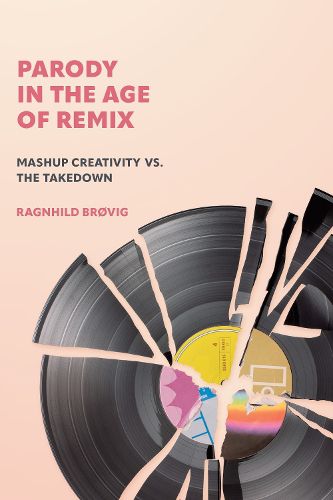Readings Newsletter
Become a Readings Member to make your shopping experience even easier.
Sign in or sign up for free!
You’re not far away from qualifying for FREE standard shipping within Australia
You’ve qualified for FREE standard shipping within Australia
The cart is loading…






The art of mashup music, its roots in parody, and its social and legal implications.
The art of mashup music, its roots in parody, and its social and legal implications.
Parody needn't recognize copyright-but does an algorithm recognize parody? The ever-increasing popularity of remix culture and mashup music, where parody is invariably at play, presents a conundrum for internet platforms, with their extensive automatic, algorithmic policing of content. Taking a wide-ranging look at mashup music-the creative and technical considerations that go into making it; the experience of play, humor, enlightenment, and beauty it affords; and the social and legal issues it presents-Parody in the Age of Remix offers a pointed critique of how society balances the act of regulating art with the act of preserving it.
In several jurisdictions, national and international, parody is exempted from copyright laws. Ragnhild Br vig contends that mashups should be understood as a form of parody, and thus be protected from removal from hosting platforms. Nonetheless, current copyright-related content-moderation regimes, relying on algorithmic detection and automated decision making, frequently eliminate what might otherwise be deemed gray-area content-to the detriment of human listeners and, especially, artists. Given the inaccuracy of takedowns, Parody in the Age of Remix makes a persuasive argument in favor of greater protection for remix creativity in the future-but it also suggests that the content-moderation challenges facing mashup producers and other remixers are symptomatic of larger societal issues.
$9.00 standard shipping within Australia
FREE standard shipping within Australia for orders over $100.00
Express & International shipping calculated at checkout
Stock availability can be subject to change without notice. We recommend calling the shop or contacting our online team to check availability of low stock items. Please see our Shopping Online page for more details.
The art of mashup music, its roots in parody, and its social and legal implications.
The art of mashup music, its roots in parody, and its social and legal implications.
Parody needn't recognize copyright-but does an algorithm recognize parody? The ever-increasing popularity of remix culture and mashup music, where parody is invariably at play, presents a conundrum for internet platforms, with their extensive automatic, algorithmic policing of content. Taking a wide-ranging look at mashup music-the creative and technical considerations that go into making it; the experience of play, humor, enlightenment, and beauty it affords; and the social and legal issues it presents-Parody in the Age of Remix offers a pointed critique of how society balances the act of regulating art with the act of preserving it.
In several jurisdictions, national and international, parody is exempted from copyright laws. Ragnhild Br vig contends that mashups should be understood as a form of parody, and thus be protected from removal from hosting platforms. Nonetheless, current copyright-related content-moderation regimes, relying on algorithmic detection and automated decision making, frequently eliminate what might otherwise be deemed gray-area content-to the detriment of human listeners and, especially, artists. Given the inaccuracy of takedowns, Parody in the Age of Remix makes a persuasive argument in favor of greater protection for remix creativity in the future-but it also suggests that the content-moderation challenges facing mashup producers and other remixers are symptomatic of larger societal issues.